Gas furnace purchase questions re: important specs/features
NaturalLight
2 years ago
last modified: 2 years ago
Featured Answer
Comments (38)
NaturalLight
2 years agoRelated Discussions
Anyone import their induction hob and/or gas dominos?
Comments (12)Price difference includes exchange rate, shipping, distribution, dealer markup, and, most importantly, what the market will bear. A big difference is that most of our small urban units are rentals owned by a landlord who owns the whole building and land, and who provides basic appliances, though less and less the fridge. Apartment house appliances are pretty basic, and not what people usually choose for their homes. And we have a lot of basic "builder" kitchens put into housing developments. In Europe the same small apartments are usually leaseholds, where someone owns the land and the skeleton of the building but people buy the use of the apartment, and there are also a lot of what's basically condominiums. They fit those out nicely because they have pride of ownership. So there's a bigger demand for higher end appliances for those. I don't know as much about the suburban developments, though my impression is that there aren't as many. Plus, in the U.S. we still have a lingering attitude that kitchens should be basic, farm style simplicity, and get freaked out by the numbers. $300 in 1960 would be over $2100 today, but we forget that saving up for a $300 appliance was a big deal for our parents, and want to pay less than $1000 for the same thing now, even though there are lots of technological advancements. And we can! If we get the above, basic units. Anyway, there's also the whole supply and demand thing. They have a higher demand for higher end appliances, so the price on them goes down. Add it all together, and you get different prices in different locations....See MoreHVAC/Forced Gas furnaces for new custom home
Comments (39)If both furnaces are installed in the basement, more rigid duct work would have to be installed, but the lineset and the wiring would shorter. I don't think there would be much difference in materials. There would be more labor. It takes more work to run the duct work up from the basement versus running flexible ducts in the attic. I have no way of estimating this. I would think an extra 2-3 days of labor should do it, but I could be way off. The plans would have to modified. You second quote for the HVAC equipment is $21,850, not $26,000. I like the second quote with the 2-stage furnaces. Remember this quote is for over sized furnaces and condensers. I don't understand why there is a separate quote for gas lines. Is this considered an option? I am not convinced you need a humidifier. You can always get a stand alone dehumidifier later if you need it. The kitchen hood is good if you like to cook....See MoreHelp with Gas Stove important options
Comments (19)may_flowers-believe me I have tried that approach. I have went round and round and to him a stove is a stove. It cooks food and he doesn't feel there is much difference between say a $800 stove and a $2k stove. I have used the tool analogy (and he doesn't buy top of the line but a good middle of the line which is where I feel I am at with the stove). I might have him come along and have a demo at the appliance store and see if that helps. He thinks we don't 'need' convection (doesn't help that his mother struggles with hers), electric oven, etc etc. He has agreed that he prefers a slide in and that also ups the $$$. He has a total mental block when it comes to appliances. I don't really care as much about any of the others but this one - it is an uphill battle! Because it's a new build I fear by the time we get to the appliances there won't be much left anyhow if we go over budget like it sounds most people do! Hopefully this is the worst of what we disagree on. Most other things we are on the same page and I am grateful for that. Because as of right now we are making the switch to gas I have been researching btu's and all that goes with that - he has no idea about it and I did not so gently point out the other day that they DO matter. He sees it as strictly cash outlay and that he could buy me 2 stoves or 3 for the price of a few I have looked at....See MoreBuilding a gas station with modern/eco features
Comments (14)Sorry Patricia, Soo, as we all know, we have to still work with fossil fuels and there is no way that we can influence on USA, OPEC or any other state who lives for oil and from oil (there is a way but we have to raise our awereness and there still would be problems). Our idea is that our national oil company (whose project we are working on) leads eco friendly gas stations revolution in our region and Europe, connecting oil and renewable energy. I am connected with people who are also willing to work on that, with some start-ups from young entrepreneurs and students (like me) working on renewable energy and eco friendly products that we want to implement on gas stations. We will try to inspire and stimulate people to cooperate with that project (with us) through some special Loyalty programs that will motivate people to use our gas stations. Currently, that is all I can tell you, but soon this project will see the light of the day and I will tell You more about it, maybe post some pictures, and hopely, one day, we will all be able to use this. Once again, sorry for not answering :)...See MoreNaturalLight
2 years agolast modified: 2 years agoNaturalLight
2 years agolast modified: 2 years agoraee_gw zone 5b-6a Ohio
2 years agolast modified: 2 years agoNaturalLight thanked raee_gw zone 5b-6a OhioElmer J Fudd
2 years agoraee_gw zone 5b-6a Ohio
2 years agofsq4cw
2 years agoElmer J Fudd
2 years agolast modified: 2 years agomike_home
2 years agoElmer J Fudd
2 years agolast modified: 2 years agokevin9408
2 years agoAustin Air Companie
2 years agoCharles Ross Homes
2 years agoAustin Air Companie
2 years agoCharles Ross Homes
2 years agoElmer J Fudd
2 years agoJennifer K
2 years agoElmer J Fudd
2 years agoAustin Air Companie
2 years agolast modified: 2 years agoElmer J Fudd
2 years ago
Related Stories

REMODELING GUIDESConsidering a Fixer-Upper? 15 Questions to Ask First
Learn about the hidden costs and treasures of older homes to avoid budget surprises and accidentally tossing valuable features
Full Story
WORKING WITH PROS12 Questions Your Interior Designer Should Ask You
The best decorators aren’t dictators — and they’re not mind readers either. To understand your tastes, they need this essential info
Full Story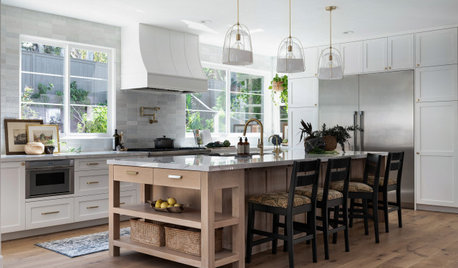
KITCHEN DESIGN9 Questions to Ask Before You Plan Your New Kitchen
To get your dream kitchen, start with a strong mission and wish list, and consider where you’re willing to compromise
Full Story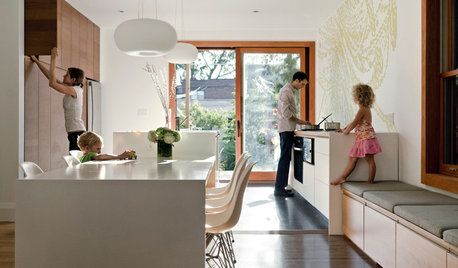
GREEN DECORATING8 Questions to Help You See Through Green Hype
With the ecofriendly bandwagon picking up some dubious passengers, here's how to tell truly green products and services from the imposters
Full Story
MOVINGHiring a Home Inspector? Ask These 10 Questions
How to make sure the pro who performs your home inspection is properly qualified and insured, so you can protect your big investment
Full Story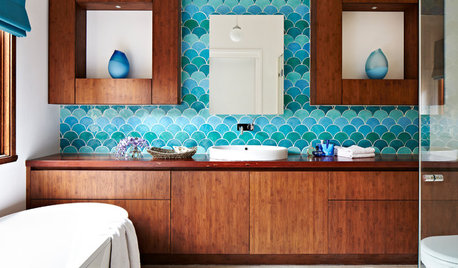
REMODELING GUIDES10 Features That May Be Missing From Your Plan
Pay attention to the details on these items to get exactly what you want while staying within budget
Full Story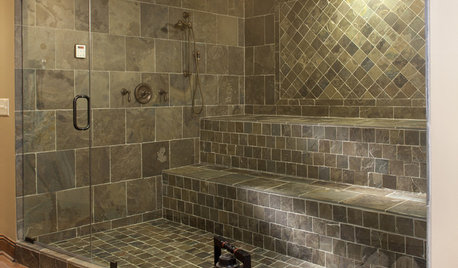
SHOWERSSteam Showers Bring a Beloved Spa Feature Home
Get the benefits of a time-honored ritual without firing up the coals, thanks to easier-than-ever home steam systems
Full Story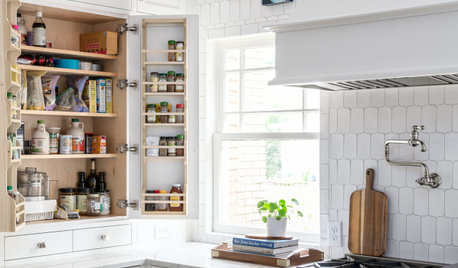
KITCHEN DESIGNPros Share 6 Must-Have Kitchen Design Features
Design and remodeling pros recommend focusing on these areas to create a functional and stylish kitchen
Full Story
LANDSCAPE DESIGN10 Questions to Ask a Landscape Designer
Discover how to choose the best designer for your yard and avoid surprises down the line
Full Story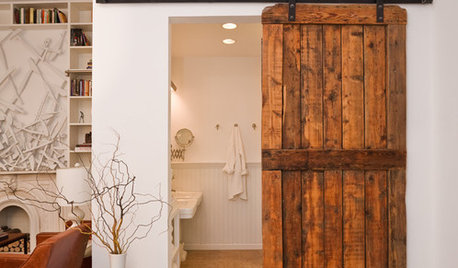
DOORS5 Questions to Ask Before Installing a Barn Door
Find out whether that barn door you love is the right solution for your space
Full Story



mike_home